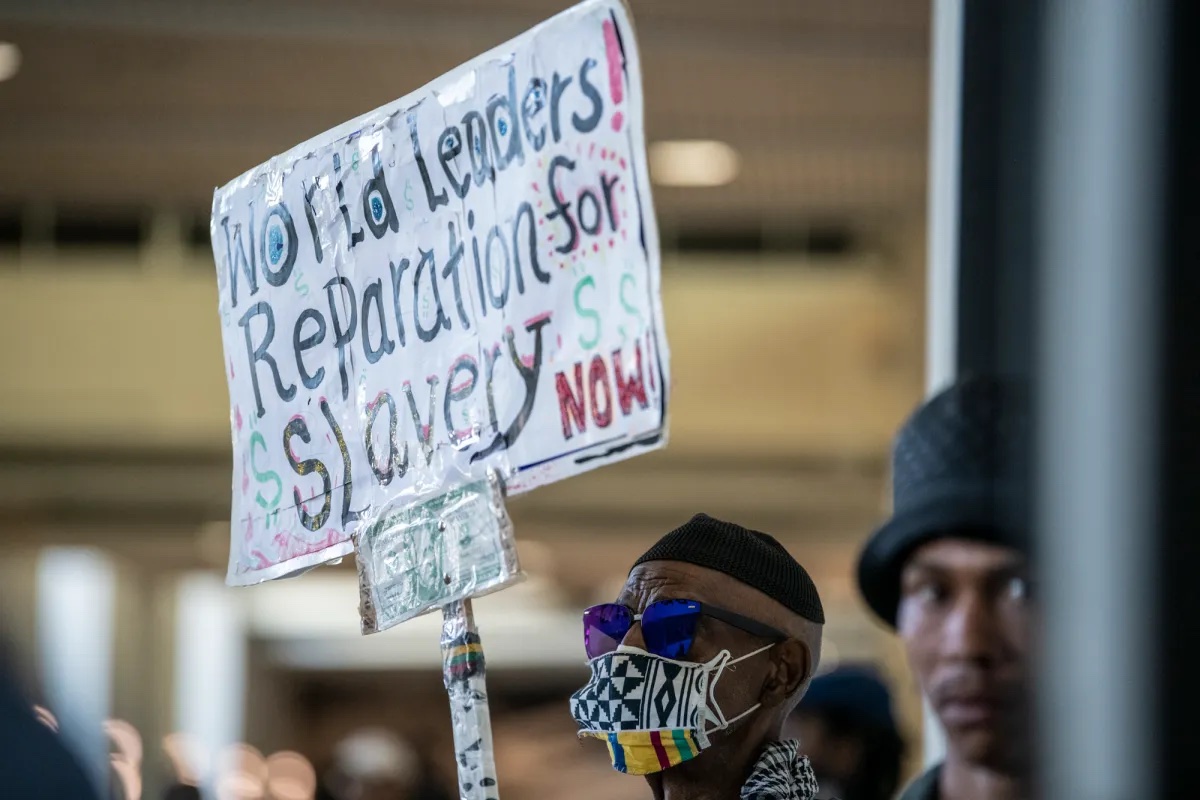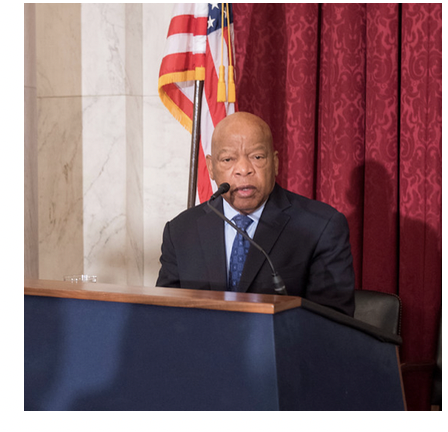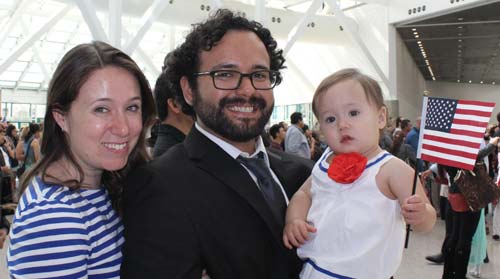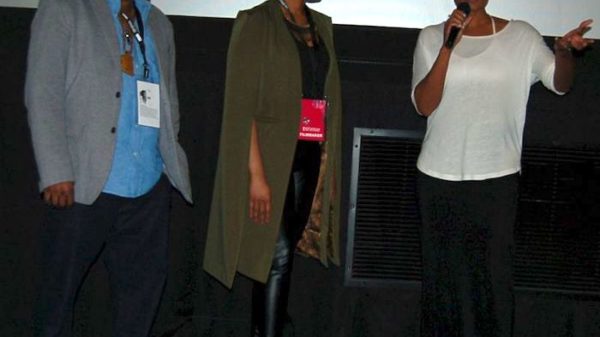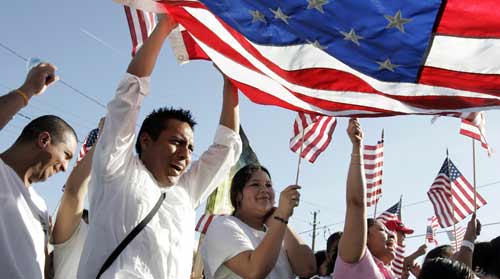Magazine, The Immigrant Experience
California’s Reparations Task Force, the first statewide body to study and develop reparations proposals for African Americans, will issue its final recommendations by July 1. The Task Force could be historic, according to a special series produced by PBS station KQED, creating a reparations model the federal government could adapt for a nationwide package. In an Ethnic Media Services (EMS) briefing the speakers and leaders around the California task force addressed why the Task Force was formed in a state that claimed to be a free state, who is eligible to receive reparations, and how the program could affect the state’s economy. The briefing was moderated by Regina Brown Wilson, the executive director of California Black Media.
The briefing began with the Secretary of State Dr. Shirley Weber the first black secretary of state in California and professor of African American studies at San Diego State University for over 20 years where she served as secretary Weber author of AB 3121, which established this task force in 2021.
The second speaker, was Assemblymember Jones-Sawyer, D-57th Assembly District and Reparations Task Force Member
and then followed by Attorney Don Tamaki, Reparations Task Force Member
Secretary of State Dr. Shirley Weber
Well, just let me give you a brief discussion brief Fair brief discussion on AB 3121 and why I felt it was important to author the bill and put it on California’s agenda. Most of you know that the National Group which has been the Congress has been grappling with the issue of reparations for I think 40 years now in terms of proposing recommendations as to what needs to happen, what kinds of things need to try to bring some sense of equity with regards to African Americans in the United States and discussions of the harm that’s been done and in each case it gets it doesn’t seem to get off the floor, doesn’t get to get any wind behind it. And once again, the black caucus had once said in a statement to the federal government, “you know, we support the reparations at the national level and we hope guys will adopt this bill “. And of course, you know, everybody’s glad to get our letter and our resolution and in the end, nothing happens. I felt that given the number of efforts that have been made to do this, California could be an example of what can possibly happen when the conversation occurs, that we were a state that was extremely diverse and we had done many things as a state and others. To deal with the issues of equity and the one population that has obviously suffered the most has been the African American population as a result of prop 209 and the various kinds of things without any recognition whatsoever of the harm that possibly has been done to African Americans and how we need to aggressively and affirmatively address the issue to try to bring some sense of justice and equality to African Americans. So maybe 3121 is born in that kind of atmosphere and as a result, it was proposed and passed by some folks in one session, was kind of surprised that it did take place, but I thought it was important that the conversation can take place in California. Let me say that 3121 came out of the fact that we could not pass a bill out of Washington. And most folks thought that it was only the South that needed to have issues of reparations. Those States had slavery but we know that slavery spread across the United States in terms of its influence and its impact on African American lives. California being a state that was supposedly a free state had many elements in it that hindered the progress and the development of African Americans in this country despite the fact that it was not supposedly designated as a slave state it encouraged slavery, and it profited from slavery and there had been some attempts in the past to basically address those issues where they do insurance policies or a host of other things. We’ve seen bills that have come before California. We’ve seen the research that’s been done out of the University of California as a result of those bills, but we’ve never had the development of a task force and an effort to begin to talk about solutions. So as a result of that 3121 came into existence not to prove that there was harm done. But to examine the amount of harm that had been done and to find a remedy for it because no one denies the fact that slavery was very harmful. Not only slavery but post-slavery activities that took place where there was economic redlining, whether it was vicious attacks on people’s lives, whether it was stealing of people’s property, poor schools, poor resources, put into communities that had a tendency to make any progress made somehow minimized. So as a result 3121 is the first state in the nation to basically talk about reparations as a state. It is also one of the wealthiest states, it is the wealthiest state in the United States and one of the wealthiest states in the world and so as it begins to talk about reparations and trying to bring some equality it has the resources to begin to do that.
The committee has been working for a little over a year to talk about the issues and hopefully, we’ll be providing some recommendations that will be coming forward in June or July. It is not the end of the discussion with the task force, it is really the beginning hopefully of the legislature taking the recommendations and moving forward with those recommendations to bring some sense of fairness and Justice to African Americans who were the sons of slaves but who now reside in, California.
Assemblymember Jones-Sawyer of the 57th Assembly District, a task force member.
I want to First just mention the names of the task force members because these are nine people who have really committed a lot of time hours: So we have Senator Steve Bradford Dr. Amos C Brown, Dr. Cheryl grills, Lisa holder Esquire myself Dr. Jovan Scott Lewis, our chairman Kamilah Moore, The Honorable Monica Montgomery Steppe Councilwoman in San Diego and Don Tamaki who worked on the Japanese reparations all of us were appointed either by the speaker, the pro tem of the senate or by the governor’s office and we bring a wealth of experience to this to this issue. In fact, if you look at the first report we did, a 400-page report backed up by quantitative facts.
For why we need reparations, why reparations are a legitimate concern for California and the country and I firmly believe the report that we put out last June, others will pick up that document and use it as they start to discuss how we do reparations of other cities, counties, states and ultimately we should have a national reparations task force, but ultimately have laws that talk about reparations that set the tone.
For the last year now, we’re now working through what exactly is reparations because it covers a myriad of different things, from the initial enslavement of African Americans when we were treated as less than citizens almost as property and enslaved and brought from Africa. The racial terror that went on in this country from the Klan and others to suppress us from being able to realize our full potential, the political disenfranchisement where we were not allowed to vote and it took up until the 60s that we were able to access to the ballot equal to our white counterparts, housing segregation, the fact that we were not allowed to live in the neighborhoods like anyone else and it was a systematic deliberate effort to make sure we stayed in segregated neighborhoods, which had fewer amenities in them, separate education, which is probably the one that’s most dear to my heart the fact that not only people were trying to make sure that we were uneducated as when we were enslaved but they wanted to continue that practice so that African-Americans could not move up and enjoy the benefits of this rich country, especially the fourth largest economy, which is called California; residential racism from the environment and infrastructure. The path lot of pathologic love of the black family, control over our creative and cultural intellectual life, our stolen labor in hindered opportunities, and an unjust legal system, which results in more African-Americans proportionally being enslaved in our prison population, the mental and physical harm and neglect, the wealth gap between African Americans and white guy counterparts.
We now are coming to the point where we’ve condensed what we believe will help to reverse all of that as I’ve always said as people keep talking about reparations in the form of finances, remuneration, and compensation. I believe the most important long-lasting things that generationally will help to reverse what has been going on in this country as Dr. Webber said. This will not be a silver bullet, we’re not to just do one thing, we’re gonna have to do several things to be able to bring African-Americans up to the same standard as others. And so I think in our next meeting in Sacramento this week, we will be talking about finalizing the report that will ultimately go to the legislature on June 30th, 2023. Then it goes to the legislature and that’s where Senator Steve Bradford and myself will probably try to craft the ultimate legislative ideas and the budgetary demands that we will make to the legislature that will ultimately come in the form of the sublative ideas on what we need to do from things as little or as easy as trying to make sure we have grants or ensuring that we have access to higher education and we’re not hobbled with debt, that we have access to capital so that we can buy our own property and then be able to close the wealth gap so that when you look at the wealth gap as we looked at it, it’s about owning property. A big part of why that gap is so big is because we were not allowed access to capital and ultimately owning land, the fact that so many African Americans are imprisoned in our prison system. We will make recommendations on how to reverse that and ultimately get our people out of the prison system or most importantly, end the school-to-prison pipeline which has plagued our community in an adverse way.
And so there as I named all the things there that are just a fraction of what we need to do in addition. There will be a discussion about whatever Financial remuneration will be and how we can make that happen in a subjective way because at the end of the day again, I want to say from my perspective, I think this is not a one-and-done silver bullet. This is a way that we can not only slowly start to reverse the messages of enslavement and racism but cancel it and end it and make sure it doesn’t creep back into our society again, and so we’re actually having a discussion with everyone because I also believe at the end of the day whatever we do as African Americans and people who join with us, it can be a boiling plate not only for future people who want to do their own reparations for African-Americans and other states and counties and others but it could also serve to help other ethnic groups who have been disadvantaged because they did not fit the white race paradigm and were kept down whether you’re women, API, Latino, It could be a boilerplate for you to seek your own reparations. What makes sense to be able to do that? That’s why this is so so important not only for African Americans but for everybody that we make this happen.
Attorney Don Tamaki, Reparations Task Force Member
The explanation is that Congress has not moved on this despite having it before them for almost 40 years. And of course, discussions about reparations are as old as 1865 and earlier. So it is time to consider and study this and do something about it as a matter of fundamental Justice. I also wanted to say thanks to Reggie Jones-Sawyer for his enormous incredible leadership of years in the legislature fighting for civil rights and also his leadership on the task force, which really made the task force stronger and ultimately the deliverables that will be produced in June. Reggie Jones Sawyer’s fingerprints are all over it.
The reparations movement, you know rises from our own community. I was on the legal team to reopen core Matsu versus the United States, which was a World War Two decision, which upheld the incarceration of an entire racial population into concentration camps which was reopened to establish if there was no reason to do this and ultimately it led to or at least contributed to the concept of reparations, which is one of the very few examples in modern history where the government has acknowledged a great wrong and put some meaningful financial atonement behind it. You know that said, there’s no equivalence between four years in the concentration camp and 400 years of exclusionary policies and enslavement and everything else but there are some lessons to be learned.
And I think that the cornerstone of our movement that helped make it successful was the publication of a study and the report a 500-page study that Reggie Jones-Sawyer was referring to called the interim report connecting the dots between 246 years of enslavement another 90 years of Jim Crow and really decades more of exclusion and the unique more the unique aspects of it is connecting the dots between that past and our current day reality and noting that, you know, the compounding and the cumulative and cascading consequences of this horrific history we’re seeing in our cities and parts of California today.
Housing, for those of you who would be interested in this, the redlining maps are depicted you know, the 30s and 40s of Los Angeles or the Bay Area. And if you align, the pre-gentrification maps are the most underserved empowered impoverished neighborhoods. They align exactly meaning that the fact that we have a hypersegregated underserved impoverished neighborhood in the most polluted areas. It is not a surprise when you think of it as shocking but the outcomes were actually planned. And that’s the insidious process. For many years is simply been viewed as normal that this focus on reparations begins to unpack and I think there was a question about, ‘How does this connect up to not only black people but everybody else?’And I would say, yes, the enslavement ended in 1865, but about five minutes after Robert E Lee surrendered, the South, was determined to reinstate the ways as close to slavery as possible. Jim Crow followed and it was imported into California and so-called free states and it’s led to you know, the redlining and the fusion and the segregation and everything else that really hasn’t only begun to be addressed in the 60s. And now we’re just kind of scratching the surface but everybody, you know is living with those consequences and that enslavement really gave birth to what I would call a racial hierarchy of us, of a norm that values white lives above all others and black and native people on the bottom and everybody else in between. And while that hate which morphed after slavery ended, not only put a target on the backs of African-Americans it also put a target on the backs of other people of color or whatever other disfavored groups du jour came along. And of course, during World War Two that target was Japanese Americans, but the one constant has been black people who are at the bottom of every metric that matters in California, whether challenging or health care or healthlessness and so on. So I do agree with assemblyman Jones Sawyer if we can solve for black people., It shines a light on everything else and it’s long overdue. And I can tell you that other people of color, Asian Americans, and other groups are very interested in this movement and in supporting it for that reason.

